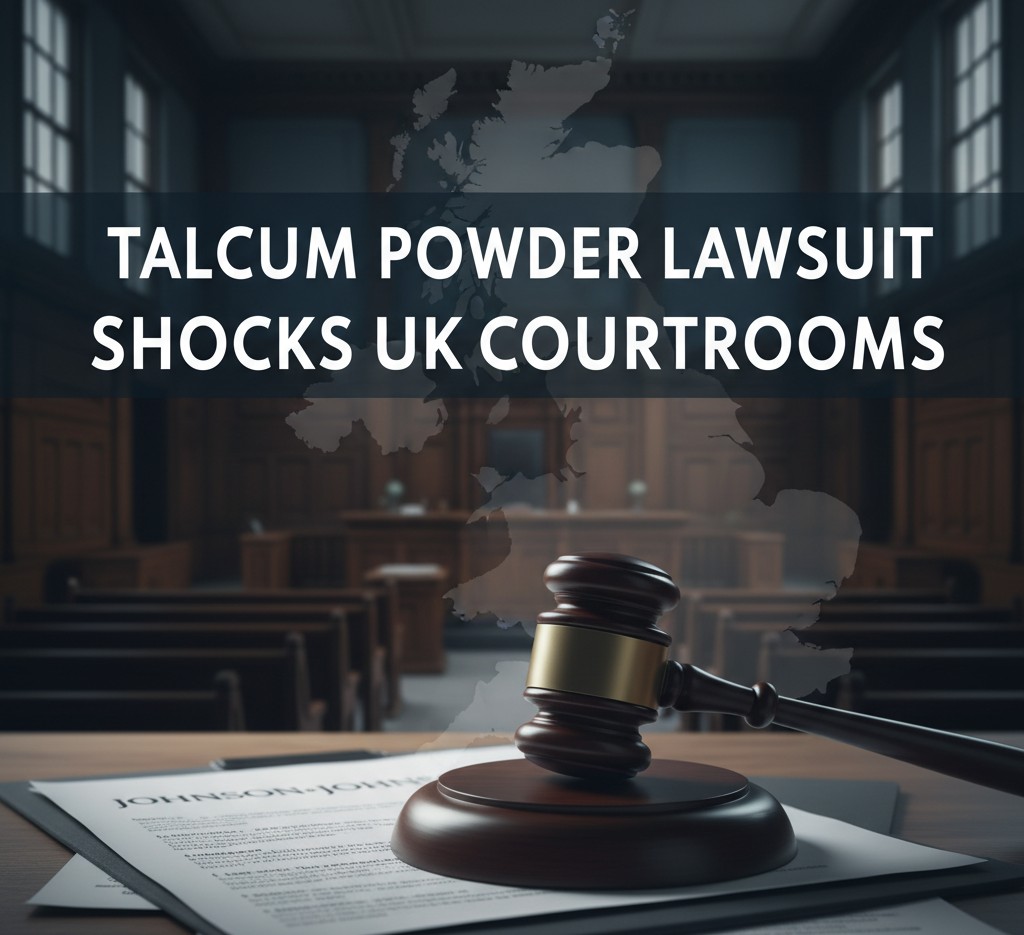More than 3,000 British families now accuse Johnson & Johnson of causing deadly cancers with their talcum powder. Massive Johnson Johnson Talcum Powder Lawsuit claim hidden asbestos risks. Lives shattered. Over $13 billion paid globally. Will justice be served, or will corporate power prevail in the UK’s biggest pharma scandal?
Johnson & Johnson faces over 3,000 UK claimants in the talcum powder lawsuit. Allegations say their talc-based baby powder contained asbestos, linked to ovarian cancer and mesothelioma. Law firm KP Law filed cases in High Court, seeking more than £1bn compensation. J&J denies all wrongdoing, insisting its products are safe.
Historic Significance
The “johnson johnson talcum powder lawsuit” is now Britain’s largest-ever product liability suit. For decades, families trusted the iconic white bottle. Talcum powder symbolized purity and gentle care. Now, thousands allege secret carcinogenic dangers. The case exposes long-standing tensions between industry profits and consumer protection. It echoes major US settlements, including a $966 million jury award in October 2025, the largest individual talc verdict to date.
Career Journey
Johnson & Johnson built its global reputation on trust and family health. The brand’s baby powder became a household staple, sold worldwide for over 100 years. Early marketing campaigns depicted safety and wholesomeness. In the post-WWII era, J&J’s expansion brought their talc into millions of British homes. Internal memos from the 1950s and 1960s reportedly show executives knew of asbestos contamination risks. By the 1970s, scientific studies began linking talc use to increased ovarian cancer rates. The company insisted its products were safe, even as lawsuits piled up in the US. In 2023, J&J stopped selling talcum baby powder globally, switching to cornstarch. Yet the debate refuses to die. Corporate denials, alleged cover-ups, and high-profile trials have made “johnson johnson talcum powder lawsuit” a headline dominating decades.
Faith & Identity
For many British families, using baby powder was an act of faith in a global giant. Generations applied it to newborns, believing in its protective promise. Now, claimants report heartbreak and betrayal. Survivors share stories of pain and loss, questioning how trust in a beloved household name could lead to suffering. One claimant said, “we trusted Johnson & Johnson to keep our children safe.” Faith in corporate messaging is shattered as alleged victims search for answers and accountability.
Expert Analysis
Leading oncologists say most talc mined globally contains some asbestos. “There exist very few, if any, commercially exploited talc deposits in the world which do not contain asbestos,” said Michael Rawlinson KC, lead counsel for the claim. Epidemiological studies found women using talc regularly have a higher rate of ovarian cancer. However, toxicologists warn causality is difficult to prove definitively. Regulators reviewed thousands of studies with mixed results. Johnson & Johnson insists its powders “adhere to all necessary standards, do not contain, and do not cause cancer.” But internal documents shown in UK court suggest “aggressive marketing” and alleged concealment of risks. Expert opinion is fiercely divided, fueling public anxiety and court battles.
Community Impact
The “johnson johnson talcum powder lawsuit” affects thousands across Britain. Victims include cancer survivors and families of the deceased. KP Law says, “the scale of Johnson & Johnson’s corporate wrongdoing is extraordinary.” Charities and advocacy groups report surges in support calls from worried parents and cancer patients. The media highlight emotional testimony, sparking a wider discussion about consumer safety and regulation. Many ask: If a trusted brand can allegedly conceal such risks, what protections do ordinary people really have?
Future Prospects
Experts predict British claimants could win historic compensation, echoing US settlements. If the courts side with victims, J&J faces prolonged financial and reputational damage. The outcome may redefine product safety standards and restore faith—or deepen mistrust—in the cosmetics industry. The next hearing is set for early 2026, promising dramatic developments.
FAQ
What is the johnson johnson talcum powder lawsuit about?
Over 3,000 people allege J&J’s baby powder caused cancer due to asbestos contamination.
Who are the main claimants?
British cancer survivors and bereaved families who used the powder for years.
How much compensation is being sought?
More than £1bn in damages is being requested from J&J.
Did Johnson & Johnson admit any wrongdoing?
No. They deny claims, insisting their product is safe and asbestos-free.
When did J&J stop selling talcum powder in the UK?
Sales ended in 2023. Cornstarch-based powder replaced talc.
What cancers are alleged in the lawsuit?
Ovarian cancer and mesothelioma are the main concerns.
How many global lawsuits exist?
There are over 67,000 pending lawsuits worldwide.
What internal documents support the claims?
Court filings cite memos showing asbestos risk awareness since the 1960s.
What is the “Texas Two-Step”?
It’s a bankruptcy manoeuvre used to shield company assets in mass litigation.
What’s next for the UK lawsuit?
The next major hearing is scheduled for early 2026 in London’s High Court.

